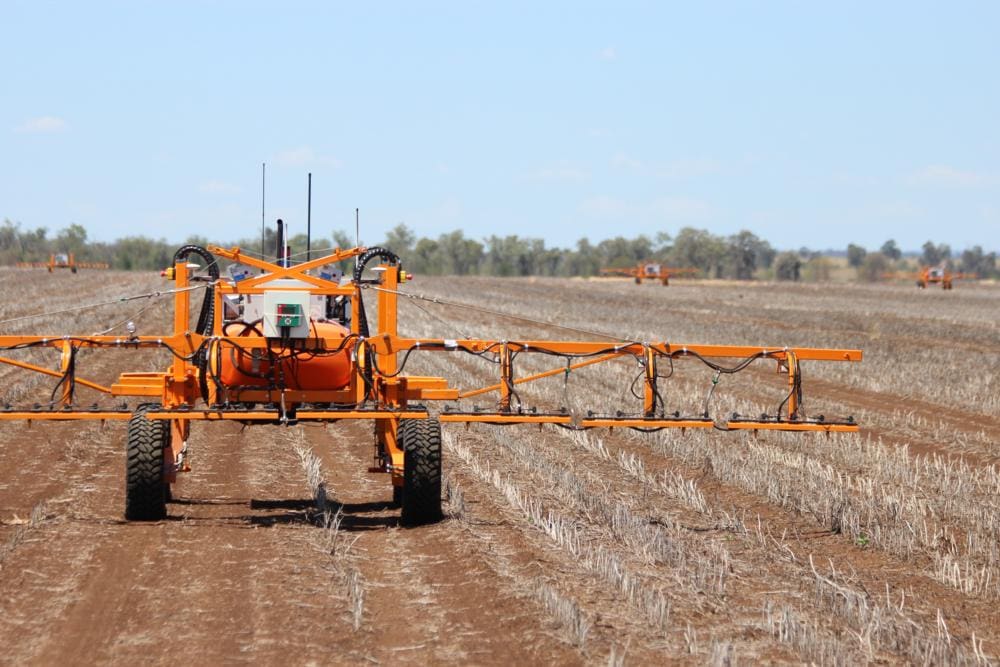WITH automation poised to transform agriculture in Australia in the coming years, Monash University researchers have published the first-ever analysis of the ethical and policy issues raised by the use of robots in agriculture.
 Agriculture employs around 2.5 per cent of the country’s workforce and is a valuable export, however, according to Professor of Philosophy Robert Sparrow and Philosophy Research Fellow Dr Mark Howard, little attention has been paid to the ethical and policy challenges that will arise as agriculture is increasingly automated.
Agriculture employs around 2.5 per cent of the country’s workforce and is a valuable export, however, according to Professor of Philosophy Robert Sparrow and Philosophy Research Fellow Dr Mark Howard, little attention has been paid to the ethical and policy challenges that will arise as agriculture is increasingly automated.
Together they investigated the prospects for, and likely impacts and ethical and policy implications of, the use of robotics in agriculture in their paper ‘Robots in agriculture: prospects, impacts, ethics, and policy’, recently published in the journal Precision Agriculture.
“While there hasn’t yet been widespread adoption of robots in farming due to a lack of technological breakthroughs, it’s anticipated there will be a gradual emergence of technologies for precision farming as well as the use of automation in food processing and packaging,” Professor Sparrow said.
“Already we are seeing the development and, increasingly, the adoption of GPS-enabled autonomous tractors and harvesters, robotic milking stations and dairies, robotic fruit and vegetable pickers, drones for rounding up livestock and crop-dusting and automation in slaughterhouses, food handling, processing and packaging all exist, among others.”
Positives, negatives
The authors said with global and local food security facing profound challenges including climate change, soil depletion, loss of biodiversity, water scarcity and population growth, robots could help farmers confront these challenges by improving yield and productivity, while reducing levels of fertiliser and pesticide use, as well as water wastage.
However, they said the widespread adoption of robots in farming could have negative consequences, including mismanagement of chemicals, soil compaction due to heavy robots and potential food wastage if consumers come to expect standardised or ‘perfect’ produce.
This could also lead to further standardisation of breeding and creation via genetic modification of crops and livestock better suited to robotic harvest.
There is also a fear that smaller or struggling farms could miss out on the technology and be unable to keep up, leading to a centralisation of ownership in agriculture.
“There’s a risk that robots could impact negatively on biodiversity and on the environmental sustainability of agriculture more generally,” Dr Howard said.
“Strong policy that encourages the development of robots that contribute to small-scale, local, and biodiverse agriculture and do not just promote existing unsustainable agricultural practices is a must.”
Animal welfare
Some industry experts suggest robots could also be used to improve the wellbeing of animals in livestock facilities by enabling feeding and watering regimes to be tailored, faster identification of sick animals and administration of medication, more humane veterinary procedures, and more humane and efficient means of slaughter.
“However, it should be acknowledged that, by their very nature, intensive farming practices pose significant challenges to animal welfare,” Dr Howard said.
“The activities of robots may actually exacerbate the threats to animal welfare in practice.”
Labour savings
On a positive note, the physically intense labour associated with agriculture work and its seasonal nature could see robots developed for tasks such as weeding, fruit and vegetable picking, food handling and packaging tasks, which could increase productivity and the amount of produce sent to market.
Labour costs could also be reduced, but this would of course mean a reduction in employment opportunities, particularly for those in rural areas where employment opportunities are scarcer.
Cyber security
Researchers said the industry also needed to consider the potential risk that malicious actors might try to “hack”, or launch cyber attacks against, the automation on the farms of other nations.
“The urgent need to move towards more sustainable agricultural practices while, at the same time, meeting an increased demand for agricultural produce globally, means that there is a strong ethical imperative to explore how robots might be used to advance these goals,” Professor Sparrow said.
“The scale of the current global environmental crisis, and the challenge it poses to food security, suggests that every option to try to improve the sustainability of agriculture should be considered.”
The authors said a holistic approach to the uptake of robot technology in agriculture was required, firstly to address public concerns and the social and political impacts that may arise, as well as comprehensive consideration of the ethical and policy ramifications of their use.
Source: Monash University

HAVE YOUR SAY